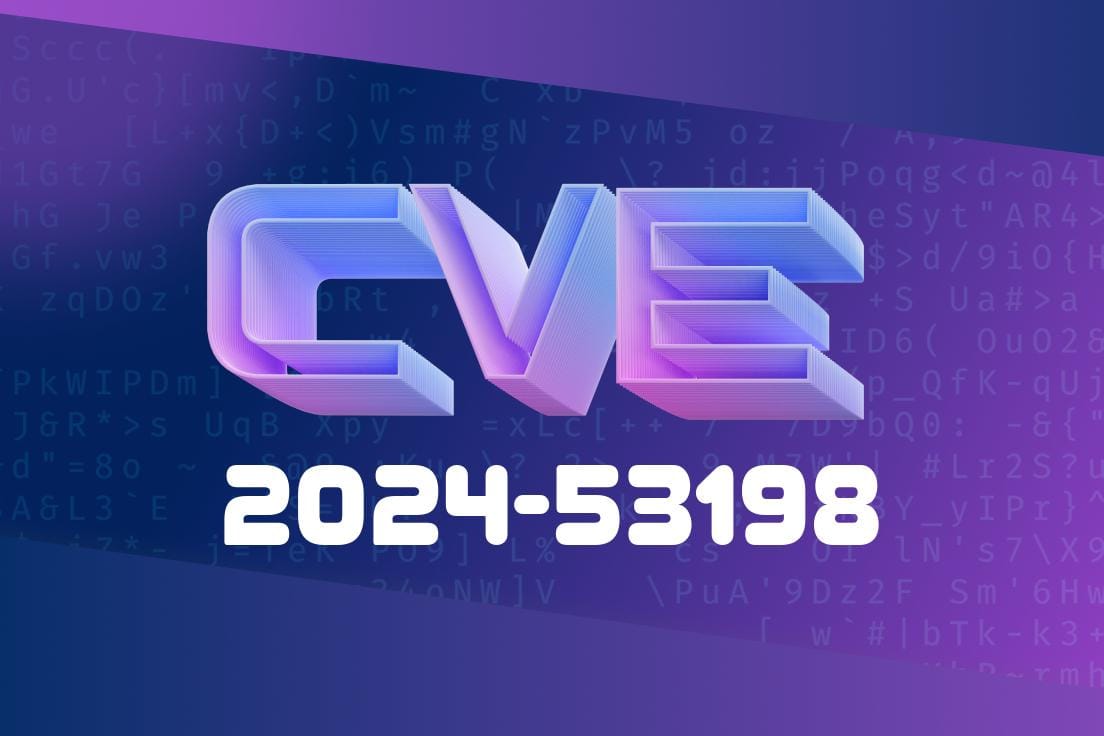CVE-2024-53198 highlights a resource management vulnerability in the Linux kernel's Xen subsystem, specifically within the xenbus_dev_probe() function. This bug could lead to reference count leaks and incomplete cleanup of resources when device probing fails under certain conditions.
This post presents a plain-English dive into what happened, shows actual code snippets, outlines the exploit potential, and links to detailed references.
What Was the Problem?
When the Linux kernel interacts with Xen virtual devices, it calls xenbus_dev_probe() to set things up. If an error occurred (the err variable was non-zero), it would immediately return without cleaning up anything that was already allocated by drv->probe(dev, id). That means resources might be left dangling:
Here’s a simplified example (not actual code) showing the dangerous pattern
err = drv->probe(dev, id);
if (err) {
return err; // Oops! Allocated stuff not released!
}
The Code: What Changed?
The Linux kernel patch adds a new cleanup block, and replaces the premature return with a goto to ensure proper cleanup is performed before returning the error.
Old (buggy) pattern
err = drv->probe(dev, id);
if (err)
return err;
Patched (fixed) pattern
err = drv->probe(dev, id);
if (err)
goto fail_remove;
And then, a new fail_remove block ensures everything is cleaned up
fail_remove:
drv->remove(dev); // Properly cleans up previously allocated resources
goto fail_put; // Continue regular cleanup
Full patch reference (excerpt)
err = drv->probe(dev, id);
if (err)
goto fail_remove;
...
fail_remove:
drv->remove(dev);
goto fail_put;
Why This Fix Works
- Mimics the existing cleanup logic in xenbus_dev_remove(), which is called during normal device removal.
How Could This Vulnerability Be Exploited?
While it doesn’t allow a typical remote attacker to seize the system, here’s why this is important:
- Local Denial of Service: A malicious (or buggy) driver, VM, or unprivileged user could repeatedly trigger device probes that fail, causing cumulative leaks.
- Elevated Risk in Cloud Environments: Resource-stressed systems (think public clouds using lots of Xen VMs) could eventually hit instability or crashes due to these leaks.
- Potential for Privilege Escalation (theoretical): In combination with other bugs, reference leaks sometimes help attackers escalate privileges, especially if they can get use-after-free or related bugs to appear.
Status: Merged into Linux kernel mainline
- Patch Commit: https://git.kernel.org/pub/scm/linux/kernel/git/torvalds/linux.git/commit/?id=9482cd69a8553933b33b96d98e41a6993b15b48e
How to Fix
- Upgrade your kernel to latest upstream/mainline
Official Patch:
CVE Details:
https://cve.org/CVERecord?id=CVE-2024-53198 (when available)
Linux Kernel XenBus source:
https://elixir.bootlin.com/linux/latest/source/drivers/xen/xenbus/xenbus_probe.c
Credits
- Discovered by an experimental static analysis tool focused on reference counting, developed by the patch author’s team.
- This is a great example of how modern static analysis tools are helping spot real-world, subtle kernel bugs that manual reviews can miss.
Summary
CVE-2024-53198 is a reference count/resource leak involving Xenbus devices in the Linux kernel, fixed by ensuring resource cleanup always happens if device probing fails. While not a direct remote code execution hole, it’s a must-fix for anyone deploying Xen or running untrusted workloads in virtualized environments.
Stay patched. And remember, static analysis is your friend—even if your code is open-source and reviewed by thousands.
*You read it here first – a clear, explained summary of CVE-2024-53198!*
Original sources and further details
- Linux kernel commit for CVE-2024-53198
- Up-to-date kernel source reference
Timeline
Published on: 12/27/2024 13:49:40 UTC
Last modified on: 11/03/2025 21:17:40 UTC
